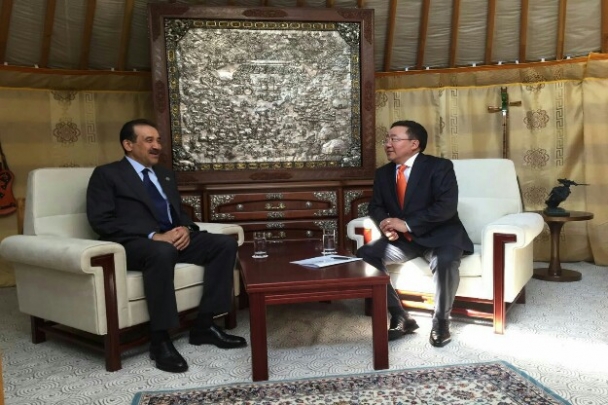ASTANA – Kazakh Prime Minister Karim Massimov travelled to Ulan Bator, Mongolia July 14-15 to attend the eleventh Asia–Europe Meeting (ASEM) summit and hold a series of bilateral meetings.
The topic of the summit was “Promotion of the ASEM Partnership for Strengthening Cooperation.” The agenda included discussing the consequences of the global economic and financial crisis, combating traditional threats and new challenges, non-proliferation, energy security, sustainable development, climate change, environment and promoting cultural relations.
Composed of 53 nations, ASEM is an inter-regional open dialogue process where member countries collaborate in the fields of politics, security, finance, economy and social culture. The organisation’s discourse addresses issues in each area, with the objective of strengthening the relationship between the two regions in a spirit of mutual respect and equal partnership, according to aseminfoboard.org.
“Kazakhstan is lucky to have a leader like President Nursultan Nazarbayev, who actively promotes internationalisation and mutual economic cooperation with all foreign partners. Thanks to his efforts, Kazakhstan has become one of the founders of the Commonwealth of Independent States (CIS) and the Shanghai Cooperation Organisation (SCO). President Nazarbayev initiated establishment of the Eurasian Economic Union (EAEU), as well as the Conference on Interaction and Confidence Building Measures in Asia (CICA),” said Massimov during his speech, reported pm.kz.
He noted in the framework of the Nurly Zhol state programme, Kazakhstan pays significant attention to developing and strengthening of the transport infrastructure linking Europe and Asia under the New Silk Road project promoted by China “.
“Kazakhstan’s new railways connect the country with Turkmenistan and Iran, thus providing the shortest route to the Persian Gulf. Also, new railways connect Almaty with the Chinese port of Lianyungang. The Western Europe–Western China transport corridor is coming to completion. I am sure that these improved transport links will strengthen cooperation between the ASEM member states,” he said.
At the same time, Kazakhstan is implementing institutional reforms aimed at developing human capital, the business environment, predictability and the rule of law, he added.
The ASEM forum is an effective platform for building global interaction, noted Massimov. He stressed Kazakhstan’s location at the crossroads of Europe and Asia defines its role as a bridge between East and West.
“Thanks to modern transport and communications systems, today Europe and Asia compose a united continent of Greater Eurasia, which represents more than 50 percent of the global GDP and 60 percent of the world’s population and includes over a third of the world’s land. It is our duty to work together in order to restore and promote the development of an open and interconnected Greater Eurasia with our friends in East Asia,” said Massimov.
He added Greater Eurasia has the potential and opportunities for collaboration and close partnerships that may benefit theorganisation and the world as a whole.
Massimov met with Czech President Milos Zeman, where the sides emphasised the potential for development of Kazakh-Czech cooperation in mechanical engineering and agriculture. He noted his nation considers the Czech Republic as one of its most important economic partners.
The Prime Minister also met with his counterparts Dacian Cioloș (Romania), Jargaltulga Erdenebat (Mongolia), Mark Rutte (the Netherlands) and Juha Sipilä (Finland) to discuss items of economic, trade and investment cooperation.
Massimov and Erdenebat also addressed issues of strengthening contacts between the countries’ business communities. The most promising areas for mutually-beneficial partnerships are energy, agriculture, transport infrastructure, housing, mining and gold and uranium processing.
Massimov met July 14 with Kazakh diaspora living in Ulgii district. Due to the flood in the region four days earlier, he promised the Kazakh government will provide financial assistance to the affected families, as 88.7 percent of the nearly 90,000 residents are Kazakh. In addition, Massimov visited the local museum and drama theatre.



